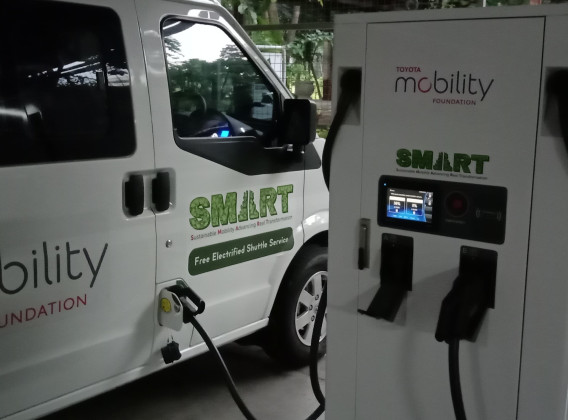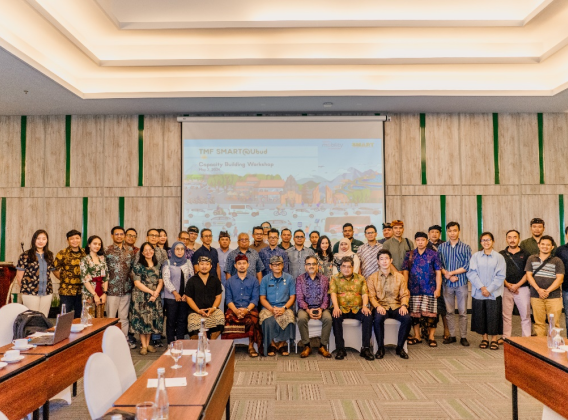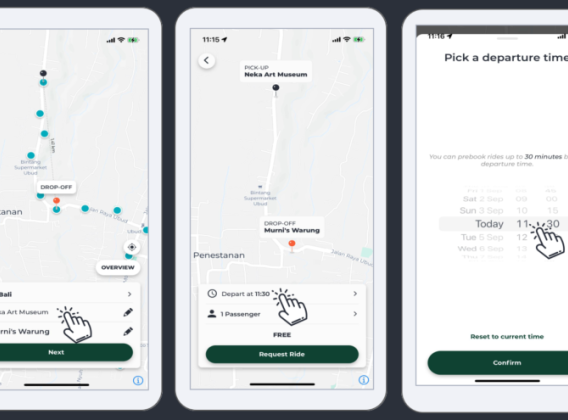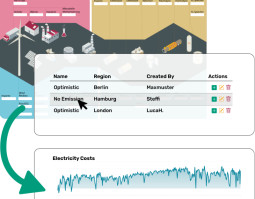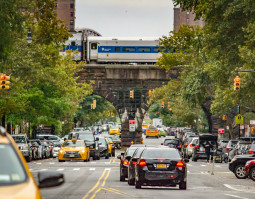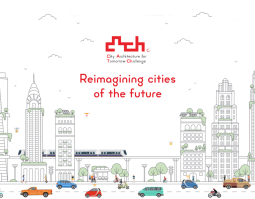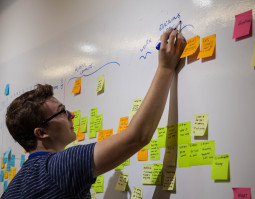Sustainable Mobility Advancing Real Transformation (SMART) Program
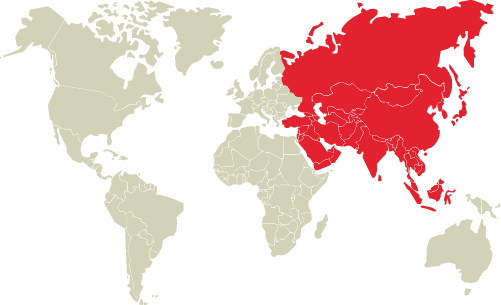
OUR opportunity
The SMART@Ubud Program sought address Ubud’s mobility issues in a sustainable manner and thus began with a hypothesis on a business model to resolve these longstanding issues. The potential business model involved the deployment of 2 solutions:
- To utilize 10 xEV units (5 Battery Electric Vehicles (BEVs), 5 Hybrid Electric Vehicles (HEVs)) to run a connected on-demand shuttle service in the Central Ubud Area, with multiple stops located within a 10-minute walking distance from key tourist destinations and popular local sites.
- To install 9 digital display monitors along high-traffic bus stops within the Trans Metro Dewata Route, providing real time visualization of bus schedules for commuters, allowing for greater convenience and connectivity, especially when used in conjunction with the first solution.
Our Approach
The trial was conducted in 3 iterations allowing for feedback to be taken and reflected into an enhanced business model at each stage.
Iteration 1: Stabilize Operations
The initial phase focused on stabilizing operations, ensuring the smooth launch of the SMART xEV shuttle service. Among the key learnings from this iteration included the need to improve operational efficiency of BEV’s through more accessible charging stations and to potentially increase penetration among local residents.
Iteration 2: Enhance Operational Efficiency
The second iteration sought to optimize the service given learnings from the first iteration. Taking feedback of the local community into account, new stops were opened to cater to local demand while socialization activities were conducted to explore opportunities to support other local customer segments. To address the issue on operational efficiency, a fast-charging station was installed within the service area to reduce operational downtime which was initially significant due to the need to travel to a distant slow charging station outside Central Ubud. From this iteration, additional learnings included opportunities to further reduce operating costs and increase ridership.
Iteration 3: Ensure Business Sustainability
Given these feedback for the third iteration TMF sought to test updates including increasing vehicle capacity, reducing number of operational vehicles, and installing real-time bus schedule displays to improve linkage to public transportation and local drivers. Other initiatives to further increase ridership included the roll-out of a loyalty program and the trial of a POI scheme with local businesses. Towards the end of the trial multiple rounds of discussions were held with the local community to align on a feasible, sustainable model for potential future implementation.
-
Timeline
- December 2022
- June 2024
-
4.8 out of 5Customer Satisfaction Rating
-
20,000Customers
Learn more about the SMART@Ubud program through the playbook.
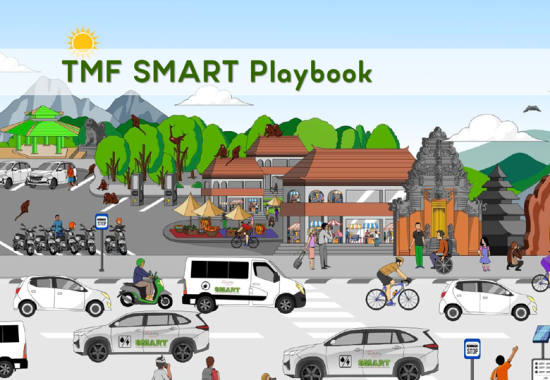
-
Low 11% cancellation ratecompared to industry average of 18%
-
Favorable 7 min waiting timecompared to industry average of 10 min
our goals
- Reduce congestion
- Reduce CO2 emissions
- Increase willingness to use public transportation

